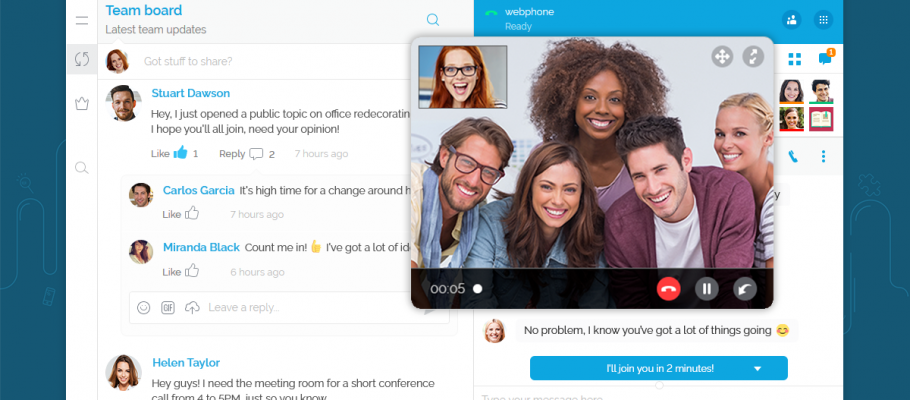Focus is a perpetual challenge. After all, adjusting and maintaining our focus is a daily battle. Hence, most of us take it personally. We seldom talk about our ability to focus. We are seldom forthwith about fatigue, distractions or procrastination. Conversely, we seldom talk about burnout or our inability to concentrate.

Posts in Category: teamwork
Work situations can vary from professional to mouth-jarringly odd or unfair. You might experience challenging bosses, clients or co-workers. It is not always that people are difficult. Rather, we all get to be difficult every now and then. Maybe it is work pressure or not having a good work-life balance. Or perhaps it is the challenging nature of collaborative work.
In fact, expect to be eventually disappointed. People you respect will every now and then fail you. People that always deliver will someday under-deliver. After all, they’re only human. Yet, being put on the spot is nobody’s strong point. You’ll find it’s tough to be spontaneous with tricky work situations. Tricky work situations make a mess of your drive and motivation. They leave you under-performing or even looking for a different job.

We all have a work conflict at one point or another. And often heated debates are the way to boost productivity. Often, the feelings we experience can be too much: anger, frustration, surprise, fear, sadness, disgust, shame, and anticipation. Yet, sharing how you feel in a work conflict may not be the best strategy.

To connect with customers, particularly online, is a priority for many businesses. Yet, in this day and age, you need to cover all the bases. It’s no longer enough to create an amazing product and offer an impeccable service. In fact, despite smart promotion strategies and heavy-set marketing campaigns, it may still not be enough.

Achievable goals are the pinnacle of a smart goal-setting strategy. Sure, you should be able to achieve your goals, generally speaking. Yet, there is a lot more to achievable goals. This is because goals are high-productivity enablers. By itself, goal-setting provides structure to individual or team efforts.
And making sure that goals are achievable builds on that. Most of all, achievable goals motivate. They become a milestone. One that requires resilience. To put it simply, achievable goals are something people feel. Achievable goals reward because they feel like the achievement that they are.

Virtual meetings are a modern flavor of regular meetings. With the help of technology, participants can meet up despite limitations like different locations, different time zones or differing schedules. Real-time virtual meetings allow participants to meet up from anywhere, at any time. And, alongside many other productivity and collaborative tools, they enhance and improve cooperation.

Working remotely is on the rise. More and more people want to work from a location of their choice. At home, wearing pajamas, on a flexible schedule. On a beach, next to a pinna colada.
Internet innovation drives remote work. Bundles of tech solutions. Long commutes in regular jobs incentivize it even further. Besides, research shows remote workers are more productive. They do more with less, which leads to work intensification.
To be fair, the reverse is nearly as likely. People that do remote work have to be productive to make the cut. The vast majority of people, however, have issues with getting motivated. Everything is so distracting. There are far too many sources for interruptions. From getting the wrong order in a coffee shop to a noisy scanner in a co-working space. While at work, you at least have a productivity benchmark. And teams to boost your morale. At home, you might get stuck in between the fridge and the couch while binging on Netflix.

Negative feedback is criticism you receive when things did not go well. At one point or another, we all find ourselves at the receiving end of negative feedback. Be it a school activity or an internship report. Or perhaps even a multinational merger.
Negative feedback is part of our lives. It is how we grow and develop. By all means, it is how we learn. Yet, it’s always difficult to accept. And things hardly get any better. Receiving negative feedback is tough at all levels. You certainly feel much better receiving compliments. But human interactions open us to plenty of negative feedback.

Millennials are one of the largest generations in history. And they are set to transform the world we live in. By the time they retire, millennials will change transportation, commerce, work, education. Everything will be different. Even right now, they are already repainting the landscape.
Born between 1980 and 2000, millennials are the product of wave after wave of incredible changes. Hence, they’re less homogenous than other generations. Hence, diversity and tolerance are key aspects of this generation. At the same time, globalization and social media have had a significant impact. So many things have happened between 1980 and 2000. Each of them enough to make the world never the same again.

Sorting through types of entrepreneurs is not something human resources get to do. Entrepreneurs, especially founders, often are the first employee. They set the tone and the future company culture. In effect, types of entrepreneurs translate into types of companies.
At the same time, hiring based on personality type is a big deal nowadays. More and more human resources managers include some sort of personality testing into hiring. Why? Because more and more organizations want to make sure they onboard the right candidate. Personality testing seems to be a safe way to ensure employees will fit in.
Yet, oftentimes the same results don’t apply to types of entrepreneurs. In fact, it appears that entrepreneurs that “make it” constantly change the paradigm for which personality type does what. Hence, let’s cover personality types for a bit, and then go into types of entrepreneurs.










